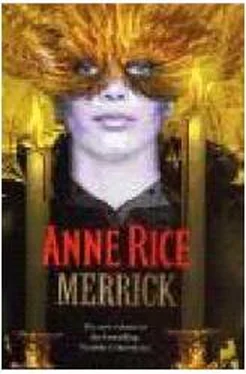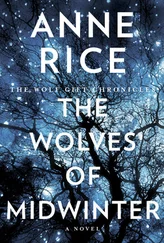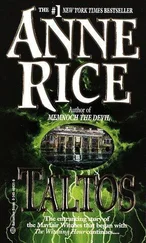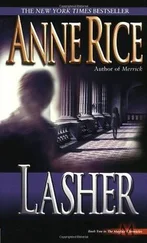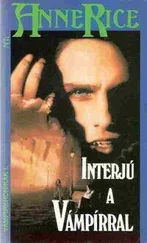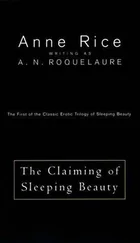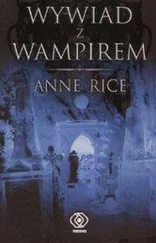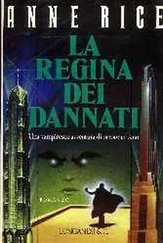Anne Rice - Merrick
Здесь есть возможность читать онлайн «Anne Rice - Merrick» весь текст электронной книги совершенно бесплатно (целиком полную версию без сокращений). В некоторых случаях можно слушать аудио, скачать через торрент в формате fb2 и присутствует краткое содержание. Жанр: Ужасы и Мистика, на английском языке. Описание произведения, (предисловие) а так же отзывы посетителей доступны на портале библиотеки ЛибКат.
- Название:Merrick
- Автор:
- Жанр:
- Год:неизвестен
- ISBN:нет данных
- Рейтинг книги:4 / 5. Голосов: 1
-
Избранное:Добавить в избранное
- Отзывы:
-
Ваша оценка:
- 80
- 1
- 2
- 3
- 4
- 5
Merrick: краткое содержание, описание и аннотация
Предлагаем к чтению аннотацию, описание, краткое содержание или предисловие (зависит от того, что написал сам автор книги «Merrick»). Если вы не нашли необходимую информацию о книге — напишите в комментариях, мы постараемся отыскать её.
Merrick — читать онлайн бесплатно полную книгу (весь текст) целиком
Ниже представлен текст книги, разбитый по страницам. Система сохранения места последней прочитанной страницы, позволяет с удобством читать онлайн бесплатно книгу «Merrick», без необходимости каждый раз заново искать на чём Вы остановились. Поставьте закладку, и сможете в любой момент перейти на страницу, на которой закончили чтение.
Интервал:
Закладка:
"I should never have done it, never," she said in a hushed and anxious voice, her breasts yielding softly against me. "It was madness. I knew what would happen. I knew his brain would be fodder for disaster. I knew it. And now he's lost; he's wounded and lost to us both."
I lifted her so that I could look into her eyes. As always their brilliant green color startled me, and enthralled me, but I couldn't concern myself with her charms now.
"But you do believe that it was Claudia?" I asked.
"Oh, yes," she said. Her eyes were still red around the edges from her crying. I saw the tears standing there. "It was Claudia," she declared. "Or that thing which now calls itself Claudia, but the words it spoke? They were lies."
"How can you know that?"
"The same way I know when a human being is lying to me. The same way I know when someone's read another one's mind and is preying upon that other's weakness. The spirit was hostile, once called into our realm. The spirit was confused. The spirit told lies."
"I didn't feel it was lying," I argued.
"Don't you see," she said, "it took Louis's very, very worst fears and morbid thoughts for its matter. His mind was full of the verbal instruments by which he could bring about his own despair. He's found his conviction. And whatever he is— wonder, horror, damnable monster—he's lost now. Lost to us both."
"Why couldn't it have been speaking pure truth?" I asked.
"No spirit speaks pure truth," she insisted. She wiped at her reddened eyes with the back of her hand. I gave her my linen handkerchief. She pressed it to her eyes. Then she looked up at me again. "Not when it's called, it doesn't. It speaks truth only when it comes on its own."
I took this idea into my thoughts. I had heard it before. Every member of the Talamasca had heard it. Spirits who are called are treacherous. Spirits who come on their own possess some guiding will. But no spirit can in fact be trusted. It was old knowledge. It gave neither comfort nor clarity to me just now.
"Then the picture of eternity," I said, "it was false, that's what you're saying."
"Yes," she said, "that's exactly what I'm saying." She wiped her nose with the handkerchief. She began to shiver. "But he will never accept it." She shook her head. "The lies are too near to what he absolutely believes."
I didn't speak. The words of the spirit were too nearly to what I actually believed as well.
She rested her head on my chest again, her arm about me loosely. I held her, staring before me at the smaller altar between the front windows, staring at the patient faces of the different saints.
A quiet and dangerous mood fell over me, in which I saw rather plainly all the long years of my life. One thing remained constant during this journey, whether I was the young man in the Candomble temples of Brazil, or the vampire prowling the streets of New York in the company of Lestat. That constant thing was that, no matter what I'd said to the contrary, I suspected there was nothing beyond this earthly life.
Of course now and then I gladly "believed" otherwise. I made my case to myself with seeming miracles—spirit winds and vampiric blood flowing. But in the final analysis, I feared there was nothing, nothing perhaps but the "measureless darkness" which this phantom, this vicious and angry phantom, had described.
Yes, I'm saying that I believe we might linger. Of course. Lingering after death for some while is not beyond the realm of science to explain someday—a soul of definable substance detached from the flesh and caught in some energy field that wreaths the planet. It is not beyond imagining, no, not at all. But it doesn't mean immortality. It doesn't mean Paradise or an Inferno. It doesn't mean justice or recognition. It doesn't mean ecstasy or unending pain.
As for the vampires, they were a flashy miracle, but consider how relentlessly materialistic and how very small that miracle is.
Picture the night when one of us is captured and carefully fastened to the table in the laboratory, housed perhaps in a tank of aerospace plastic, safe from the sun, day and night beneath a flickering gush of fluorescent light.
There he would lie, this helpless specimen of the Nosferatu, bleeding into syringes and test tubes, as doctors gave to our longevity, our changelessness, our connection to some binding and ageless spirit—a long Latin scientific name.
Amel, that ancient spirit said by the eldest of us to organize our bodies and connect them—it would one day be classified as some force quite similar to that which organizes the tiny ant in its vast and intricate colony, or the marvelous bees in their exquisite and impossibly sophisticated hive.
If I died, there might be nothing. If I died, there might be lingering. If I died, I might never even know what became of my soul. The lights around me—the warmth of which the child phantom had spoken so tauntingly—the warmth would simply go away.
I bowed my head. I pressed my left fingers hard to my temples, my right arm tightening against Merrick who seemed so precious, so frail.
My mind shot back to the dark spell and the luminous child phantom in the middle of it. It shot back to the moment when her arm was lifted, when Merrick cried out and was thrown back. It shot back to the child's wonderfully realized eyes and lips, and the low musical voice issuing from her. It shot back to the seeming validity of the vision itself.
Of course, it could have been Louis's despair which fueled her fount of misery. It might well have been my own. How much did I, myself, want to believe in Lestat's articulate angels or Armand's glimpse of crystalline celestial splendor?
How much did I myself project upon the seeming void my own late and grossly lamented conscience, straining again and again to voice love for the maker of the wind, the tides, the moon, the stars?
I could not end my own earthly existence. I was as fearful as any mortal that I might be resigning forever the only magical experience that I'd been privileged to know. And that Louis might perish seemed a simple horror, rather like seeing an exotic and poisonous flower, fallen from its secretive jungle perch and crushed underfoot.
Did I fear for him? I wasn't certain. I loved him, I wanted him with us now in this room. I did. But I wasn't certain that I had the moral stamina to coax him to remain in this world another twenty-four hours. I wasn't certain of anything at all. I wanted him for my companion, mirror of my emotions, witness of my aesthetic progress, yes, all those things. I wanted him to be quiet and gentle Louis, that I knew. And if he did not choose to go on with us, if he did in fact take his own life by walking into the sunlight, then it would be all the harder for me to continue, even with my fear.
Merrick had begun to shake all over. Her tears were not stopping. I gave in to my desire to kiss her, to breathe in the fragrance of her warm flesh.
"There, there, my darling," I whispered.
The handkerchief clutched in her right hand was small and wet.
I lifted her as I stood up. I pulled down the heavy white chenille spread and laid her on the clean sheets. Never mind her soiled dress. She was cold and frightened. Her hair was tangled beneath her. I lifted her head and brought her hair up and over the linen. I saw her sink into the down pillows, and I kissed her eyelids to bid them to close.
"Rest now, precious darling," I said. "You only did what he asked."
"Don't leave me just now," she said in a raw voice, "except if you think you can find him. If you know where he is, then find him. Otherwise stay here with me, just for this little while."
I went down the hall in search of a bathroom and found it to the very rear of the house, a spacious and somewhat lavish arrangement with a little coal fireplace as well as a great claw-foot tub. There was the usual pile of clean white terry cloth towels one expects amid such luxury. I moistened the end of one of these and brought it back to the front room.
Читать дальшеИнтервал:
Закладка:
Похожие книги на «Merrick»
Представляем Вашему вниманию похожие книги на «Merrick» списком для выбора. Мы отобрали схожую по названию и смыслу литературу в надежде предоставить читателям больше вариантов отыскать новые, интересные, ещё непрочитанные произведения.
Обсуждение, отзывы о книге «Merrick» и просто собственные мнения читателей. Оставьте ваши комментарии, напишите, что Вы думаете о произведении, его смысле или главных героях. Укажите что конкретно понравилось, а что нет, и почему Вы так считаете.
